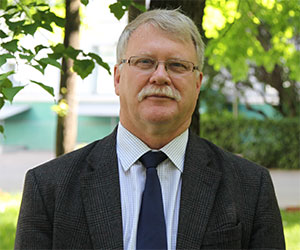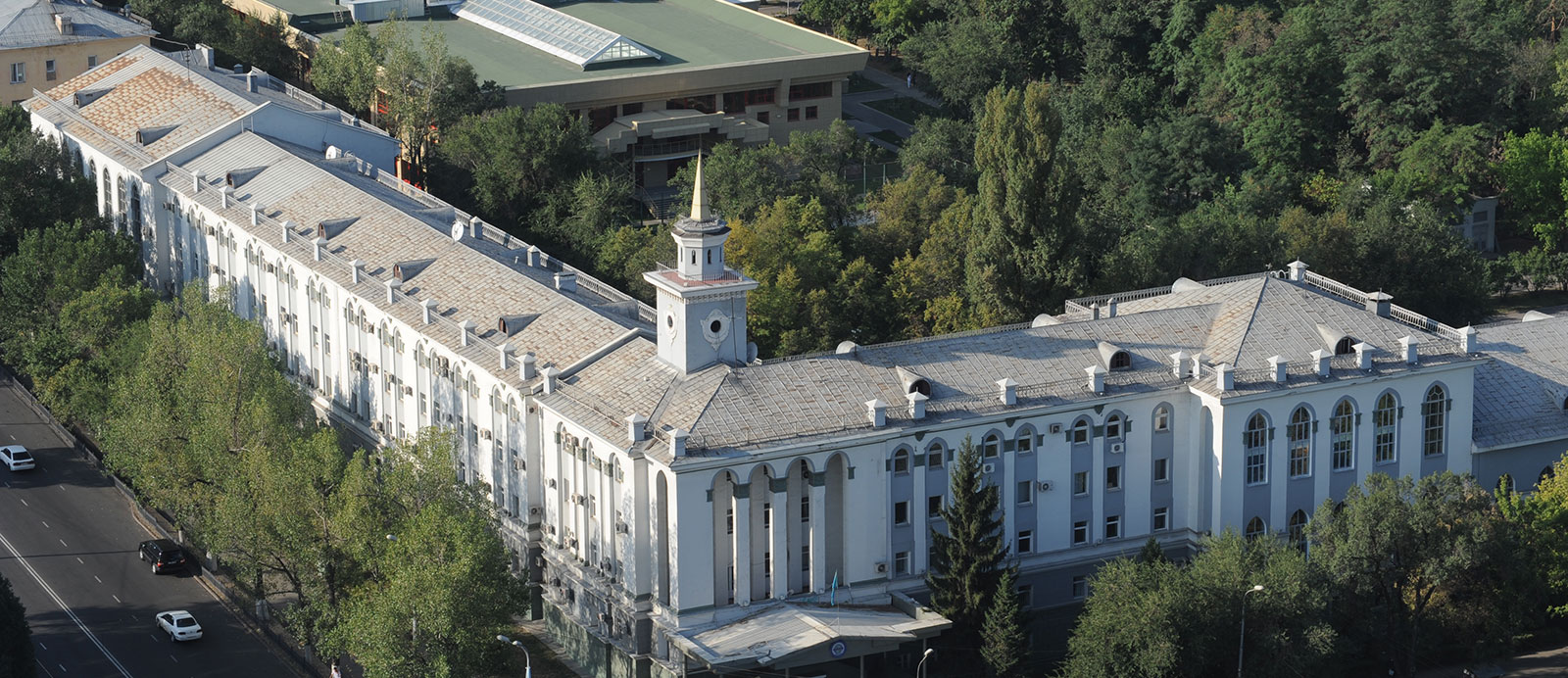Open and honest communication together with transparent and accountable decision making are among the core values of KIMEP University, while participation of students, faculty, staff and outside stakeholders is one of the core principles in the management and governance of the University.The management and governance consists of Board of Trustees and Academic Council bodies and acts with respect to the regulations of the Charter of KIMEP.
Mission and Core Values
KIMEP UNIVERSITY MISSION STATEMENT
“The mission of KIMEP University is to develop well-educated citizens and to improve the quality of life in Kazakhstan, Central Asia, and beyond through teaching, research, learning, community service and the advancement of knowledge in business administration, social sciences, law, languages and other fields.
To fulfill this mission, KIMEP University offers undergraduate and postgraduate degree programs at the highest level of international educational standards to outstanding students, who will become equals to graduates of other world-class universities. KIMEP University students demonstrate leadership, talent, language capabilities, and academic excellence.
The mission statement aims to bring the core values to life, setting a practical goal for the operations of KIMEP community. All members of the community are acting with respect, openness, honesty and integrity and have a commitment to quality and intolerance of nepotism, corruption and discrimination.”
KIMEP University values:
KIMEP has seven core values. These values were developed by faculty, staff and students to set the guiding principles of KIMEP University employees and students. The Core Values are intended to guide the culture of KIMEP University, to set the foundation of both the university’s vision and mission. The core values as originally developed for KIMEP University were 12 value statements. At the request of KIMEP Student Association, the core values were revisited during the strategic planning process for the 2018-2021 Strategic Plan. The core values were consolidated to create seven values which are much easier to remember than the original 12.
1. An academic environment, which fosters integrity, mutual trust, free exchange of ideas, lifelong learning and encourages students, faculty, and staff to reach their highest potentials
2. Intellectual and personal honesty in learning, teaching, research, and service.
3. The well-being of students, faculty, and staff.
4. An inclusive environment for students, their parents, alumni, staff, faculty, and the wider community, blind to nationality, gender, age, religion, or other factors not related to the purposes of the University.
5. The development of the future leaders of society who will embrace the highest ethical standards;
6. The University’s high reputation and its important contribution to the growth of society.
7. Transparent decision making, free from favoritism, nepotism or corruption
Charter of KIMEP
TABLE OF CONTENTS
1. General provisions and legal status of NJSC ‘KIMEP University’
2. The subject, goals and objectives of the activities of NJSC ‘KIMEP University’
3. Founders
4. Rights and obligations of the shareholders
5. Shares of NJSC ‘KIMEP University’
6. Management of NJSC ‘KIMEP University’ (Bodies. General Meeting of Shareholders. Board of Trustees. Executive Committee. Councils)
7. Officials of NJSC ‘KIMEP University’
8. Affiliated persons of NJSC ‘KIMEP University’ Order of providing information on affiliated persons
9. Faculty, research and support staff
10. Admission to NJSC ‘KIMEP University’ students and attendees
11. Organization of academic and research activity
12. System of education and curriculum structure
13. System of assessment of student learning
14. Public organizations
15. Branches and representative offices of NJSC ‘KIMEP University’
16. Financial statements and audit of NJSC ‘KIMEP University’
17. Reorganization and liquidation of NJSC ‘KIMEP University’
Download the KIMEP Charter (.pdf)
Board of Directors
BOARD OF DIRECTORS
For the advancement of the strategic development of KIMEP University, utilization of current international educational technologies, and development of research activities and international academic collaboration, the Board of Directors consists of some of the most competent representatives of science, education, business and state bodies of the Republic of Kazakhstan and foreign countries. Members of the Board of Directors are elected at the General Meeting of Shareholders of KIMEP University.
The Board of Directors oversees the administration of KIMEP University with the exception of those issues which are ascribed by the Charter to the competence of the General Meeting of Shareholders.
Composition of the Board of Directors
The Board of Directors is composed of leaders in the spheres of academia, business and government bodies both in Kazakhstan and internationally. Members of the Board of Directors by the General Meeting of Shareholders of KIMEP University NJSC.
Currently, the Board of Directors consists of the following members:
1. Anastassios Sitsas – Chairman of the Board of Directors, representative of the shareholder Chan Young Bang;
2. Chan Young Bang – shareholder (60%), President of the President’s Cabinet;
3. Bibigul Amangeldinovna Assylova – representative of the shareholder (40%), Vice Minister of Education and Science of the Republic of Kazakhstan;
4. Kuanysh Assylkhanovich Yergaliyev – Representative of MSHE (40%);
5. Yerbol Sabyrzhanuly Akhmetov – Representative of CSPP of the MF of the RK;
6. Stephen John Beresford Nye – the independent Director;
7. Yerbol Zinaddinovich Suleymenov – Independent Director;
8. Zhanar Umirzakovna Bazarbekova – representative of the shareholder Chan Young Bang;
9. Jandosov Oraz Aliyevich – Independent Director;
10. Arman Yeskendirovich Meirmanov – Independent Director.
President’s Cabinet

Provost and General Deputy to the President
Assists the President of the University and represents the President as commissioned. Acts on behalf of the President as instructed by the President. Oversees all University matters: academic and economic operations, as well as innovative and strategic operations of the University.

Vice President of Academic Affairs
VPAA is responsible for all operations of the University related to academic leadership, curriculum, personnel management for the academic division, and budget planning and fiscal management for the academic division. Supports and works in partnership with the faculty governance system. All academic areas report to the VPAA.

Vice President for Finance
Preparation of complete and accurate information on University operations and its property status;
Control over the use of material and financial resources in accordance with allocated budget and designation;
Prevention of negative outcomes of economic operations of the University and guarantee of its financial stability.
Deans

Dean of the Bang College of Business
To provide strategic leadership and strategic management in the academic and operational development of the College
1. Ensure implementation of Institution-wide policies and regulations within the College
2. Ensure the proper use and allocation of all resources – physical, information, human and financial, including delivery to plan within budget.
3. Contribute fully to the Institution’s corporate planning and communications processes and lead the development of College Plans, including the setting of income generation targets.
4. Be responsible for the management of all staff in the College including, the maintenance of a safe and healthy working environment

Dean of the College of Social Science
Filipov. M. et. al. (2017). Do Bulgarian Schools Effectively Communicate with Their School Communities? Journal of School Public Relations, 37(2):163-202.
Filipov. M. (2016). Media Release – A Basic Genre in Public Relations. Journal of Contemporary Humanitaristics, 2016(1): 7-18. (co-authorship with Galya Hristozova).

Dean and Professor of Law
Michael Blasie is the foremost expert on United States plain language laws. He focuses on laws that regulate legal document design. His research investigates the intersection of linguistics and the law. Professor Blasie presents internationally on designing legal documents, including in Argentina, India, Kazakhstan, Turkey, and Uzbekistan. Indeed, he served as a keynote speaker at the 2024 Plain Language Association International’s conference.
Professor Blasie’s book is the first comprehensive analysis of United States plain language laws. His research appears in journals like the Columbia Business Law Review and Wisconsin Law Review. Westlaw and Wolters Kluwer have published his work.
Professor Blasie served as a writing instructor for the United States’ National Judicial College, where he taught judges from across the world how to improve judicial opinion writing.
He serves as Dean of KIMEP University School of Law. Before that he was a professor at Seattle University and Penn State Dickinson Law School. Earlier he spent ten years serving as a civil and criminal trial lawyer in the United States and as a law clerk to Judge David Richman.

Dean of the College of Humanities and Education
Provides strategic vision to the College of Humanities and Education, oversees the implementation of efficient management systems and drives the College to improve and develop. Supervises the World Languages Preparatory Program to ensure the highest level of student directed language instruction and support. Main priorities are: to hire, to train and to develop the best language instructors in the region, and to ensure that the College employees incorporate teaching and service excellence into their daily routines.

Dean of School of Computer Science & Mathematics
Dr. Brian Davis holds a PhD in Mathematics from the University of Mississippi and has held various administrative roles, including Department Chair, Dean, Director of Assessment and Institutional Research, and Vice President for Academic Affairs. As the Dean of the School of Computer Science and Mathematics, he leads strategic planning, ensures program quality, and manages institutional partnerships.

Interim Dean of Student Affairs
“Team-teaching of law and English at a Tertiary Level”, Alatoo Academic Studies2016 (1)
“Russia” in Sources of State Practice in International Law 2 Revised ed. Ralph Gaebler and Alison Shea, Eds. (Leiden: MartinusNijhoff, 2014)
Academic Council
Authority
The establishment of the KIMEP Academic Council (KAC) was authorized by the General Meeting of Shareholders (2009) on the recommendation of the Board of Trustees of KIMEP (2009). The Council shall have the necessary powers vested in it by the Charter of KIMEP (amended and approved by the Ministry of Justice, RPK, 2009) to perform its duties, achieve the academic objectives and purposes of the Institute, and to make such reasonable academic policies for the education of its students.
Purpose
The purpose of the Academic Council of KIMEP University (the “Council”) is to manage the academic affairs of KIMEP University. The Council is the collegiate body of KIMEP University that gives Faculty Members of KIMEP University a formal instrumentality to express to the President’s Cabinet the considered recommendations of the Faculty. In as much as the explicit authority of the Council is not exclusive, the Council has the responsibility to manage any issue that may be deemed to come within the term “Academic Affairs.”
Composition of KIMEP Academic Council
The Council shall be composed only of faculty members of KIMEP University; defined in Part II (1) of these Bylaws, under procedures set forth in Part V. A Member of the Council shall serve as Chair of a Standing Committee.
Members of Academic Council
1. Each College granting or offering a degree shall have representation on the Council. The number of representatives shall be as follows:
3 representatives from the College of Social Sciences;
3 representatives from the Bang College of Business;
2 representatives from the College of Humanities and Education
1 representative from the School of Law
2. Each representative shall be selected by each College in a manner determined by that College.
3. Voting members include elected faculty members, Deans, and two student representatives from the KIMEP Student Association.
Total voting members: 16
Ex-Officio members without voting rights:
1. The Vice –President for Academic Affairs, the Directors of Recruitment and Admissions, Executive Education Center, Registry shall have the status of non-voting observers of the Council
[1] Charter on the Non-profit Joint-Stock Company “KIMEP University” (NJSC “KIMEP University”) approved at the General Meeting of Shareholders of Non-profit Joint-Stock Company “Kazakhstan Institute of Management, Economics and Strategic Research” (“KIMEP NJSC”), Protocol Nr. 14, on December 23, 2011 in Almaty [KIMEP University Charter], Art. 6.4.1.





